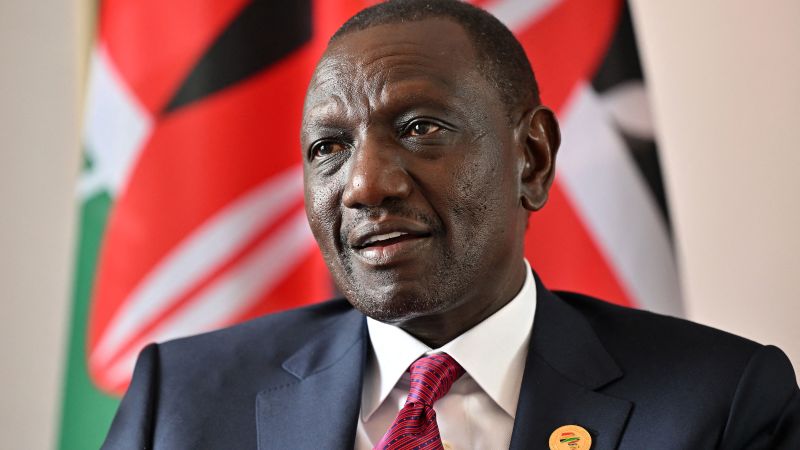
In recent days, Kenya has been gripped by mass protests over a controversial finance bill. The bill, which included tax hikes and other economic measures, sparked outrage among Kenyans who saw it as an unnecessary burden during difficult economic times. The protests reached a boiling point on Tuesday, leaving at least 23 people dead and resulting in property damage and the desecration of constitutional institutions.
The protests began organically on social media, with young people leading the charge against the bill. Their efforts were successful in forcing President William Ruto to abandon his support for the legislation. Ruto had initially defended the bill as necessary to avoid defaulting on Kenya's debt and stabilizing its economy.
The protests came amid growing concerns over Kenya's fiscal situation. The country's domestic and foreign public debt totals $80 billion, accounting for nearly three-quarters of its economic output. Interest payments on the debt consume 27% of the revenue collected, leaving little room for other essential services such as health and education.
The protests were met with a heavy-handed response from security forces, who used teargas and live ammunition to disperse crowds. Several prominent social media users were reportedly abducted by police, and six people remain missing.
The Law Society of Kenya called for the resignation of Kenya's inspector general of police and Nairobi regional commander over allegations of shooting protesters and abductions. US Secretary of State Antony Blinken urged restraint on all sides and expressed concern over human rights abuses.
Despite Ruto's decision to scrap the bill, protests continued on Thursday under the banner of a 'One Million People March.' The government buildings that were set on fire during the clashes have yet to be rebuilt, and tensions remain high in Nairobi.



